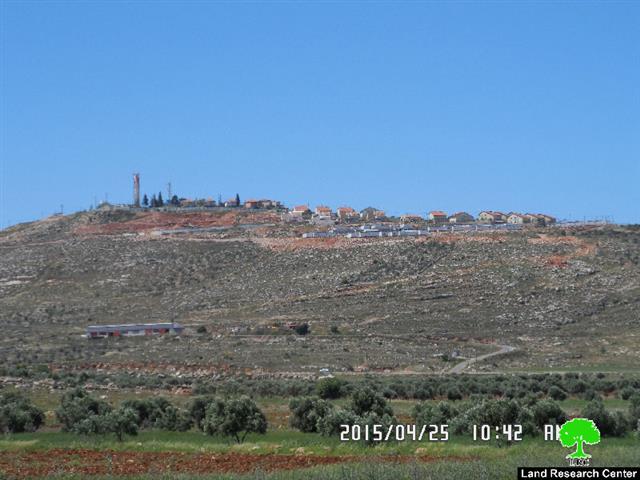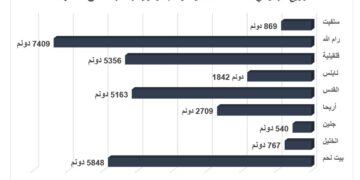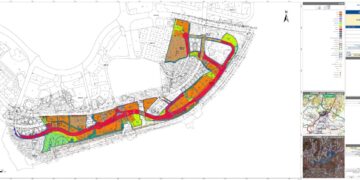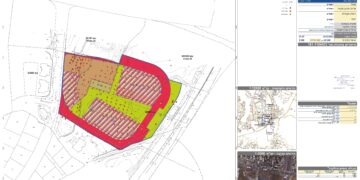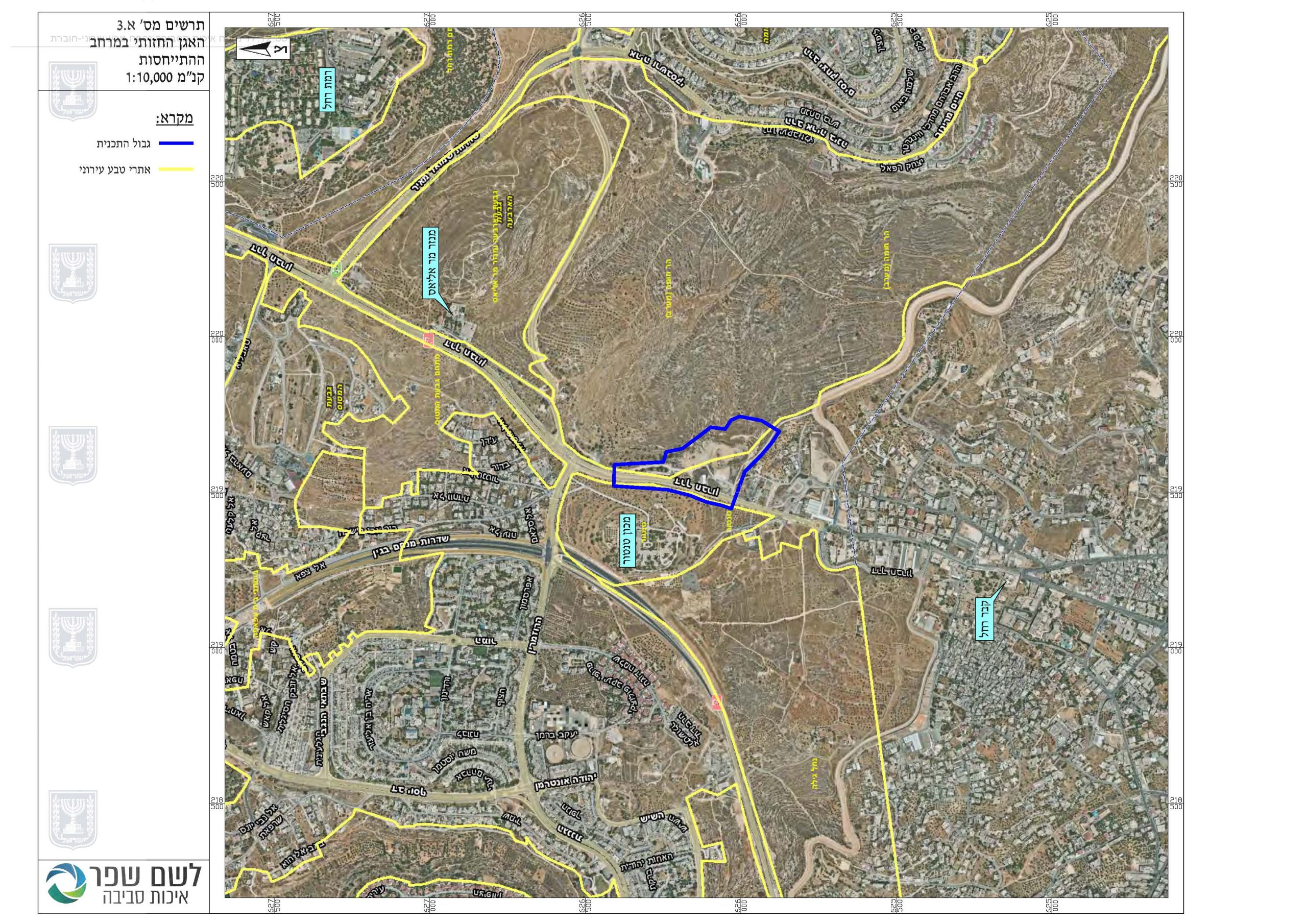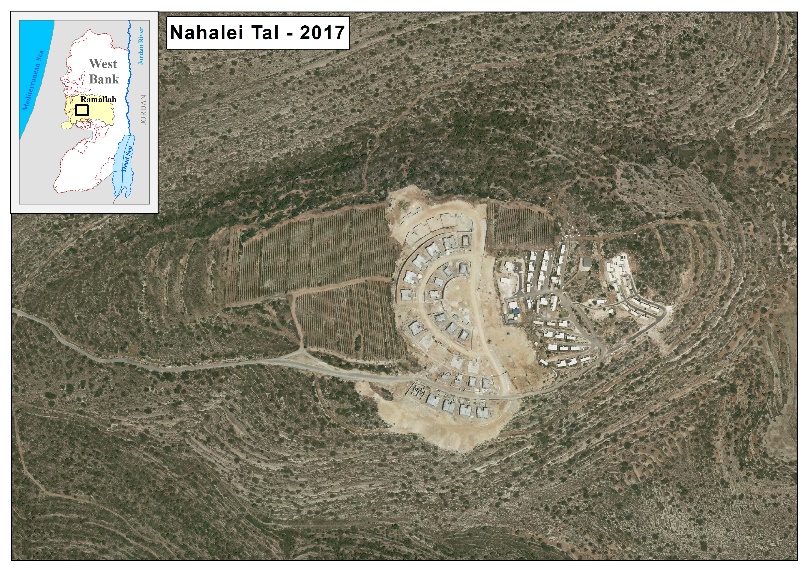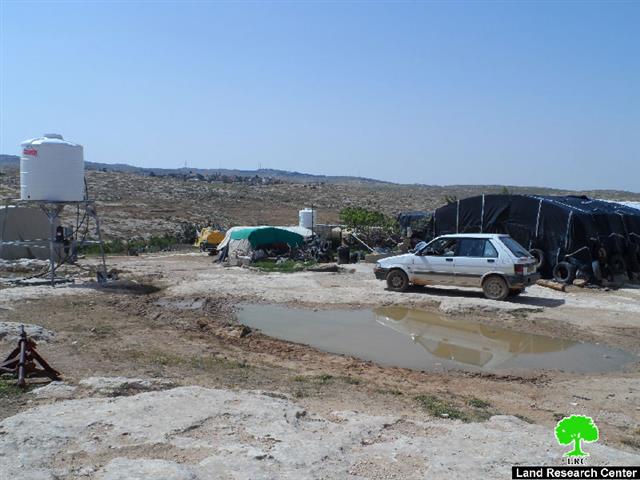Violation: expanding the colony of Migdalim
Date: 01/04/2015
Location: Qusra village- Nablus
Perpetrators: Migdalim colonists
Victims: southern country side of Nablus
Details:
The colony of Migdalim that is founded on confiscated lands from the Nablus village of Qusra is witnessing colonial expansion for the sake of accommodating more colonists in the area. This step is considered de facto.
Land Research Center documented the setting up of 30 caravans to the northwestern side of the colony, making a new colonial quarter. The occupation provided water and electricity to the new quarter and opened roads in a step to make it an extension of the colony itself.
It should be marked that the northern part of Migdalim is undergoing , since 2014, ravaging works that reached out 70 dunums until the issuance of this report. The targeted lands are located nearby the colony; the leveling works are believed to be undertaken to accommodate more colonial units and to develop the infrastructure of the area.
Photos 1-6: the expansion works on Migdalim
About Migdalim:-
It should be marked that the colony of Migdalim was founded in 1948 on the confiscated lands of Qusra and Jurish villages in the suburb of Nablus city. The colony was expanded three times in size due to the unrest that was caused by the second Intifada. Now, the colony populates around 560 colonists.
Land Research Center sees Israel continuous expansion on colonies in the West Bank and Jerusalem at the expense of Palestinian and lands a flagrant violation of Human Rights and all international laws and conventions, which prohibit disposition of public properties in occupied countries.
UN Security Council resolutions in regard to Israeli colonies: UN Security Council resolution 446, article 3 " Calls once more upon Israel, as the occupying Power, to abide scrupulously by the 1949 Fourth Geneva Convention, to rescind its previous measures and to desist from taking any action which would result in changing the legal status and geographical nature and materially affecting the demographic composition of the Arab territories occupied since 1967, including Jerusalem, and, in particular, not to transfer parts of its own civilian population into the occupied Arab territories;"
ü Un Security Council resolution 452, article 3"Calls upon the Government and people of Israel to cease, on an urgent basis, the establishment, construction and planning of settlements in the Arab territories occupied since 1967, including Jerusalem;"
ü Un Security Council resolution 465, Strongly deplores the continuation and persistence of Israel in pursuing those policies and practices and calls upon the Government and people of Israel to rescind those measures, to dismantle the existing settlements and in particular to cease, on an urgent basis, the establishment, construction and planning of settlements in the Arab territories occupied since 1967, including Jerusalem;
Calls upon all States not to provide Israel with any assistance to be used specifically in connexion with settlements in the occupied territories;
UN Security Council resolution 242, Affirms that the fulfilment of Charter principles requires the establishment of a just and lasting peace in the Middle East which should include the application of both the following principles:
(i) Withdrawal of Israel armed forces from territories occupied in the recent conflict;
(ii) Termination of all claims or states of belligerency and respect for and acknowledgment of the sovereignty, territorial integrity and political independence of every State in the area and their right to live in peace within secure and recognized boundaries free from threats or acts of force;
Convention (IV) respecting the Laws and Customs of War on Land and its annex: Regulations concerning the Laws and Customs of War on Land. The Hague, 18 October 1907.
- Article 46. Private property cannot be confiscated.
- Article 55: The occupying State shall be regarded only as administrator and usufructuary of public buildings, real estate, forests, and agricultural estates belonging to the hostile State, and situated in the occupied country. It must safeguard the capital of these properties, and administer them in accordance with the rules of usufruct.
- Art. 49. Individual or mass forcible transfers, as well as deportations of protected persons from occupied territory to the territory of the Occupying Power or to that of any other country, occupied or not, are prohibited, regardless of their motive.
- Art. 53. Any destruction by the Occupying Power of real or personal property belonging individually or collectively to private persons, or to the State, or to other public authorities, or to social or cooperative organizations, is prohibited, except where such destruction is rendered absolutely necessary by military operations.
- Art. 147. Grave breaches to which the preceding Article relates shall be those involving any of the following acts, if committed against persons or
property protected by the present Convention: wilful killing, torture or inhuman treatment, including biological experiments, wilfully causing great suffering or serious injury to body or health, unlawful deportation or transfer or unlawful confinement of a protected person, compelling a protected person to serve in the forces of a hostile Power, or wilfully depriving a protected person of the rights of fair and regular trial prescribed in the present Convention, taking of hostages and extensive destruction and appropriation of property, not justified by military necessity and carried out unlawfully and wantonly.
Prepared by
The Land Research Center
LRC

